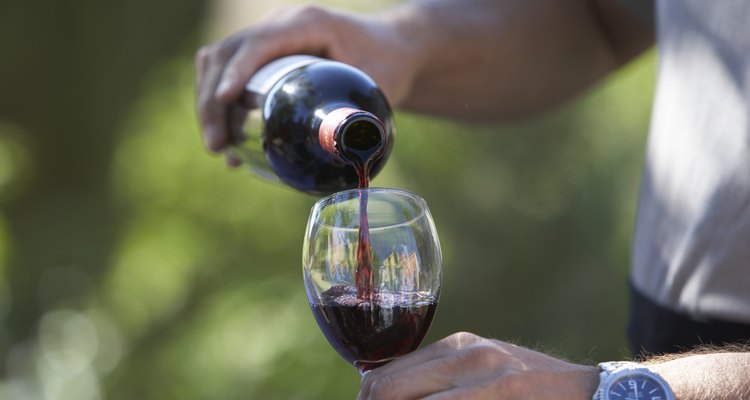
Although you may think that wine lasts forever, all wines eventually expire and become unpleasant to drink. While some types of wine can last for years or even decades, improving in flavor without spoiling, others go bad after a few years. Once opened, any wine spoils within a matter of weeks, although you can take measures to extend the wine's life for as long as possible by storing it properly.
Wine Fermentation
Wine is made through the fermentation of grape juice. When yeast and sugar are added to crushed grapes, a chemical reaction takes place in which the sugars in the grapes are added to the mixture are converted into alcohol. During this fermentation process, certain acids and bacteria work to change the taste of the grape juice into a more rich, slightly bitter and complex liquid, resulting in wine. While the alcohol helps to preserve the wine and extend its shelf life, sometimes the acids and bacteria that help with the fermentation process can eventually end up spoiling the wine, destroying its flavor and rendering it undrinkable.
Wine Shelf Life
Not all wines are created equal, and while some of them can last for up to 100 years if unopened, others may only last for a few years. Generally, red wine lasts longer than white wine because of the tannins contained in the skins of the crushed grapes and the wood of the wine barrels used to make it. Tannins act as a natural preservative. Grape skins aren't used to make white wine so it contains less tannins and lasts anywhere between one and two years. Red wines can last from two to three years. Fine wines and dessert wines can last much longer, usually for over 10 years.
Storing Wine Properly
To maximize your wine's shelf life, store bottled wine on its side to keep the bottle's cork moist and air-tight. The ideal temperature for wine storage is 55 degrees Fahrenheit, but you can generally store your wine between 45 and 65 F, recommends Wine Spectator Magazine Online. Keep the humidity level in the dark room in which you store your wine at around 70 percent. A wine cellar, spare closet or specialty wine cooler make ideal spots to store your wine. Once opened, though, you'll need to refrigerate your wine and drink it within three days to two weeks.
Is it Bad?
The reason that wine eventually spoils is that oxygen allows certain bacteria in it to flourish and form unpleasantly-flavored acetic acid within the liquid, essentially turning it into a form of vinegar. These acids and bacteria give the wine a sour, sharp and unpleasant taste. Vinegar can last indefinitely, which is why some believe that wine can't spoil because it transforms into vinegar, although it isn't vinegar that tastes very good. Sometimes, if the wine maker hasn't properly sterilized his equipment during the production of his wine, harmful bacteria can contaminate the wine, even when it's stored properly. If your wine smells and tastes moldy, stale or overly acidic, it's time to discard it.
Related Articles

How to Send Wine to France

How Long Does Liquor Keep in Storage?

Why Is White Wine Turning Brown in a ...

Qualities of a Good Wine

Types of Bacteria in Wine

How Long Should a Wine Collector Keep a ...
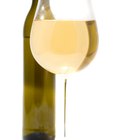
How to Remove Mold From Wine
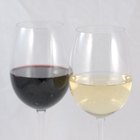
How to Make Homemade Wine Taste Better

Does a Chilled Champagne Bottle Need to ...
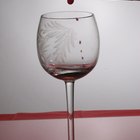
Types of Amber Wine
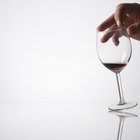
How to Pasteurize Homemade Wine

How to Store Balsamic Vinegar

How Long Can a Bottle of Vodka Last ...

How to Determine if Wine is Sweet or Dry

What Is the Primary Difference Between ...

Can Shaking Wine Ruin It?
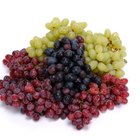
Types of Wine Listed Alphabetically

Can Drinking Old Vodka Hurt You?

How to Make Alcohol at Home
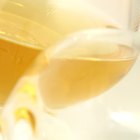
How to Store Cognac
References
- EatByDate: How Long Does Wine Last?
- Popular Science: Why Does Wine Go Bad Once You've Opened It?
- Madsci Network: Is it Possible for Wine to Ever Go Bad?
- New York Magazine: The Four Most Common Defects and How to Detect Them
- WineIntro: Is Old Wine Safe to Drink?
- Iowa State University Extension and Outreach: Lactic Acid Bacteria and Wine Spoilage
- Wine Spectator Magazine Online: How to Store Wine 101: 7 Basics You Need to Know
Resources
Writer Bio
Based in Las Vegas, Susan Paretts has been writing since 1998. She writes about many subjects including pets, finances, crafts, food, home improvement, shopping and going green. Her articles, short stories and reviews have appeared on City National Bank's website and on The Noseprint. Paretts holds a Master of Professional Writing from the University of Southern California.
Photo Credits
Rayes/Photodisc/Getty Images